Thailand and New Zealand have enjoyed formal diplomatic relations since March 1956. It is a relationship that has remained dynamic, and Thailand has grown to become the eighth most important trading partner of New Zealand, in global terms.
The two countries’ 67 years of formal diplomatic relations is wide ranging, encompassing security, bilateral, political, trade, and economic links The relationship also includes regional issues of common interest, such as disarmament and climate change, as well as working closely together on environmental matters.
The three free trade agreements that are currently in effect between Thailand and New Zealand are the:New Zealand-Thailand Closer Economic Partnership Agreement (NZTCEPA), the ASEAN-Australia-New Zealand Free Trade Agreement (AANZFTA) and the Regional Comprehensive Economic Partnership (RCEP).
Since the NZTCEPA came into force in 2005, total New
Zealand exports to Thailand have more than tripled.Tariffs and quotas on all exports will be progressively eliminated before the end of 2025.As members of the AANZFTA since 2010, this agreement has improved opportunities and access for New Zealand service providers in Thailand, particularly in the education sector.
New Zealand and Thailand are both signatories to RCEP. It came into force in January 2022 and provides commercial benefits for New Zealand goods exporters. RCEP also lowers compliance costs, reduces the time exporters wait for goods to clear customs, and enhances transparency and predictability for businesses in the RCEP region.
Thailand is New Zealand’s 8th largest trading partner, with the total trade in goods between the two countries showing an annual growth rate of about 8 percent. Although the value of the exports to Thailand fluctuates from year to year, since the Closer Economic Partnership (CEP) came into force in 2005, total exports have almost doubled. New Zealand is now also importing twice as much from Thailand as it did before the CEP.
New Zealand's goods exports to Thailand reached a total annual value of just over NZ$1 billion in 2021. Top export categories for 2021 were dairy, fruit, aluminium, wood pulp and medical ventilators.
The main products that New Zealand imports fromThailand are delivery trucks ($694M), cars ($287M), and air conditioners ($165M). During the last 26 years the exports of Thailand to New Zealand have increased at an annualised rate of 12 percent from $111M in 1995 to $2.11B in 2021.
The two countries’ 67 years of formal diplomatic relations is wide ranging, encompassing security, bilateral, political, trade, and economic links The relationship also includes regional issues of common interest, such as disarmament and climate change, as well as working closely together on environmental matters.
The three free trade agreements that are currently in effect between Thailand and New Zealand are the:New Zealand-Thailand Closer Economic Partnership Agreement (NZTCEPA), the ASEAN-Australia-New Zealand Free Trade Agreement (AANZFTA) and the Regional Comprehensive Economic Partnership (RCEP).
Since the NZTCEPA came into force in 2005, total New
Zealand exports to Thailand have more than tripled.Tariffs and quotas on all exports will be progressively eliminated before the end of 2025.As members of the AANZFTA since 2010, this agreement has improved opportunities and access for New Zealand service providers in Thailand, particularly in the education sector.
New Zealand and Thailand are both signatories to RCEP. It came into force in January 2022 and provides commercial benefits for New Zealand goods exporters. RCEP also lowers compliance costs, reduces the time exporters wait for goods to clear customs, and enhances transparency and predictability for businesses in the RCEP region.
Thailand is New Zealand’s 8th largest trading partner, with the total trade in goods between the two countries showing an annual growth rate of about 8 percent. Although the value of the exports to Thailand fluctuates from year to year, since the Closer Economic Partnership (CEP) came into force in 2005, total exports have almost doubled. New Zealand is now also importing twice as much from Thailand as it did before the CEP.
New Zealand's goods exports to Thailand reached a total annual value of just over NZ$1 billion in 2021. Top export categories for 2021 were dairy, fruit, aluminium, wood pulp and medical ventilators.
The main products that New Zealand imports fromThailand are delivery trucks ($694M), cars ($287M), and air conditioners ($165M). During the last 26 years the exports of Thailand to New Zealand have increased at an annualised rate of 12 percent from $111M in 1995 to $2.11B in 2021.
The 30th ASEAN-New Zealand Dialogue was held in Bandar Seri Begawan , Brunei, on 7 June 2023. The dialogue welcomed the positive developments in the ASEAN-New Zealand Strategic Partnership, and shared a common sentiment to energise and promote their relationship.
ASEAN recognised New Zealand’s commitment to support ASEAN Centrality through active participation in ASEAN-led mechanisms including cooperation activities under the four themes stipulated in the ASEAN-New Zealand Plan of Action, namely Peace, Prosperity, People, and Planet.
The meeting agreed to continue strengthening existing cooperation and explore new areas for future cooperation in counter-terrorism and combating trafficking in person; cyber security; maritime cooperation; human rights; trade, investment, and digital economy; micro, small, and medium enterprises (MSMEs); people-to-people initiatives; education; and public health.
Both sides looked forward to the signing of the 2nd Protocol to Amend the ASEAN-Australia New Zealand Free Trade Area and called for the effective implementation of the Regional Comprehensive Economic Partnership agreement.
In the context of bolstering existing economic cooperation along with intensifying people-to-people linkages, the meeting looked forward to the finalisation of the negotiation of the Regional Air Services Agreement between the ASEAN member states and New Zealand.
Recognising New Zealand’s leading role in addressing climate change, the meeting reiterated the need to amplify cooperation in the areas of renewable energy; climate-smart agriculture; sustainable development, bio-circular, and green economy; infrastructure and connectivity; smart cities; along with the support for the Initiative for ASEAN Integration and sub-regional development.
Both sides also looked forward to further exploring initiatives and activities to commemorate the 50th anniversary of ASEAN-New Zealand Dialogue Relations in 2025.
The Thai - New Zealand Chamber of Commerce has an important part to play, and the president of the Chamber always leads the way forward. Presidents of a countries’ Chamber of Commerce are most usually drawn from a national of that country, but New Zealand has been innovative in that the most recent President was from Thailand. Maya Pearson BA (Law) runs her own company, Premier Thai Lawyers, and has long had an affinity with New Zealand, its businesses, and its people. She became President of the New Zealand – Thai Chamber in 2018. and left the Presidency (Maya is still Vice President) at the end of 2022 to take on an even more demanding and wide-reaching position. Thailand is a founder member of the Association of South East Asian Nations (ASEAN), with 10 member states. In February 2023 Maya became President of the New Zealand - ASEAN Business Alliance (ABA)
The ABA is a network consisting of local chambers / associations in Malaysia, Thailand, Vietnam, Singapore, New Zealand, Myanmar, Philippines and Indonesia. The ABA provides reciprocal membership rights to each partner organisation. So if you are a member of the ASEAN New Zealand Business Council, then you have access to the benefits of each of all the other local organisations. ABA encourages increased connections between the chambers by sharing events, speakers, discussing common issues and shared learning. It creates a strong network of contacts between chambers and develops regional strategies.
After we contacted the NZ - ABA we were fortunate to be invited to talk to its President, Maya Pearson..
Interview with Maya Pearson
RWM: Maya, thankyou for taking time out from your busy schedule for this interview. Could you fill us in with a little about your background.
MP: It’s my pleasure. I am a proud Bangkokian, and after high school I studied law at Thammasat University. After graduating I worked at one or two law firms in the city to gain a little experience, before I founded my own company, Premier Thai Lawyers, in 2006.
RWM: How did your association with New Zealand come about?
MP: Back when we first started Thai Premier Lawyers we came to know one of New Zealand’s trade commissioner through my husband Mark Pearson. I was invited along to participate in some of the New Zealand Society’s business events. I began to do a little work on their behalf, and I was soon asked if I would like to join the committee meetings of the society as an observer. I enjoyed attending the meeting, and after it ended I was invited to have dinner with the then president. During the dinner, in 2016, he asked me if I would like to become a member of the committee. I was so surprised at this offer, but of course I accepted, and that was the genesis of how I became friendly with so many people from New Zealand who lived in Thailand. I became an active member, attended all the meetings, and soon after joining I helped to arrange the New Zealand Ball, a highlight of the year for the Kiwis in Thailand, their friends, and their business partners. Within one year I was asked if I would join the committee of the New Zealand - Thai Chamber of Commerce (NZTCC), and after only a year there I was honoured to be voted in as its President. That was in 2019, a post I held until November 2022. I was the first person to hold this position who was not a native of New Zealand.
RWM: During your tenure as president what do you think are some of the achievements you are most proud of?
MP: I worked to the best of my ability to bring all sectors of New Zealand interests in Thailand closer together. From New Zealand alumni, to the Chamber, to business persons, to departments within the Embassy, and other private organisations, so that they could all facilitate each others work. And 2019 was also the year that the New Zealand, ASEAN Business Alliance was formed, and I felt privileged to have been a part of its inception.
I became interested in New Zealand and Maori culture. One of the most loved festivals in New Zealand is ‘Matariki’, which celebrates the beginning of the Maori New Year, in July. For the Maori, astronomy was interwoven into all facets of life. The relationship of the stars and planets to the moon and sun, what was happening on the land, lakes, rivers, and oceans. All of these facets were attributed qualities and named accordingly, and their stories were woven into the history of the people. For the Maori it was long the highlight of their year, but since the beginning of the 21st century all New Zealanders embrace Matariki, as part of their national heritage. I have been instrumental in bringing this festival to Thailand. It is destined to become one of the most important (and enjoyable) events held in Thailand for all Kiwis and their friends.
RWM: Now that you are President of the New Zealand ABA, what does your work entail, who do you have to talk to, and forge alliances with?
MP: My role as president is still very new to me, but the previous president has briefed me that it is important to build a relationship with members of the Thai government; such as the Minister for Foreign Affairs, the Ministry of Trade and Commerce, Ministry of the Environment, directors of Thai and New Zealand companies who do business together, etc.
RWM: It sounds as though your new role is going to keep you pretty busy. What are your travel plans likely to be this year?
MP: I have already been to my first presidents meeting of the ABA in Kuala Lumpur, Malaysia, and I will certainly be returning to New Zealand. I have not yet travelled to all ASEAN member states, but I am looking forward to help bring Myanmar closer into the orbit, and I hope the turmoils within the country can be resolved quickly and in a way that causes the least harm to their peoples. When Burma is able to return to democracy the ABA will be an important part of its recovery.
RWM: The ABA focuses on trade within its own member states, but does it not also have to develop trade and business ties with other countries outside ASEAN, such as Europe, Korea, America, the UK, etc?
MP: The ASEAN Business Alliance is not limited to focusing only on members from ASEAN, we have to develop trade, commerce and environmental protocols with countries outside our own bloc.
RWM: Is there anyone who has been a role model to you, an inspiration, who has helped you on your journey to be the first foreign president of the New Zealand – Thai Chamber of Commerce, and president of the New Zealand ASEAN Business Alliance?
MP: There are many people who have helped me in my journey, but two spring immediately to mind; the former Ambassador of New Zealand to Thailand is a person I came to greatly admire, they taught me empathy and humility, which came from their ability to listen to people, and give good advice, stemming from an inner strength, that they had accumulated during their successful career in diplomacy: the second is my ex-husband Mark Pearson, who gave me so much help while we were still married. He remains my best friend, and is always the first one I look to for advice.
RWM: Maya, thank you so much for an illuminating and interesting interview.
MP: It has been my pleasure. I hope that you and your readers will mark a date in your diary, and join us for Matariki this July, in Bangkok.
ASEAN recognised New Zealand’s commitment to support ASEAN Centrality through active participation in ASEAN-led mechanisms including cooperation activities under the four themes stipulated in the ASEAN-New Zealand Plan of Action, namely Peace, Prosperity, People, and Planet.
The meeting agreed to continue strengthening existing cooperation and explore new areas for future cooperation in counter-terrorism and combating trafficking in person; cyber security; maritime cooperation; human rights; trade, investment, and digital economy; micro, small, and medium enterprises (MSMEs); people-to-people initiatives; education; and public health.
Both sides looked forward to the signing of the 2nd Protocol to Amend the ASEAN-Australia New Zealand Free Trade Area and called for the effective implementation of the Regional Comprehensive Economic Partnership agreement.
In the context of bolstering existing economic cooperation along with intensifying people-to-people linkages, the meeting looked forward to the finalisation of the negotiation of the Regional Air Services Agreement between the ASEAN member states and New Zealand.
Recognising New Zealand’s leading role in addressing climate change, the meeting reiterated the need to amplify cooperation in the areas of renewable energy; climate-smart agriculture; sustainable development, bio-circular, and green economy; infrastructure and connectivity; smart cities; along with the support for the Initiative for ASEAN Integration and sub-regional development.
Both sides also looked forward to further exploring initiatives and activities to commemorate the 50th anniversary of ASEAN-New Zealand Dialogue Relations in 2025.
The Thai - New Zealand Chamber of Commerce has an important part to play, and the president of the Chamber always leads the way forward. Presidents of a countries’ Chamber of Commerce are most usually drawn from a national of that country, but New Zealand has been innovative in that the most recent President was from Thailand. Maya Pearson BA (Law) runs her own company, Premier Thai Lawyers, and has long had an affinity with New Zealand, its businesses, and its people. She became President of the New Zealand – Thai Chamber in 2018. and left the Presidency (Maya is still Vice President) at the end of 2022 to take on an even more demanding and wide-reaching position. Thailand is a founder member of the Association of South East Asian Nations (ASEAN), with 10 member states. In February 2023 Maya became President of the New Zealand - ASEAN Business Alliance (ABA)
The ABA is a network consisting of local chambers / associations in Malaysia, Thailand, Vietnam, Singapore, New Zealand, Myanmar, Philippines and Indonesia. The ABA provides reciprocal membership rights to each partner organisation. So if you are a member of the ASEAN New Zealand Business Council, then you have access to the benefits of each of all the other local organisations. ABA encourages increased connections between the chambers by sharing events, speakers, discussing common issues and shared learning. It creates a strong network of contacts between chambers and develops regional strategies.
After we contacted the NZ - ABA we were fortunate to be invited to talk to its President, Maya Pearson..
Interview with Maya Pearson
RWM: Maya, thankyou for taking time out from your busy schedule for this interview. Could you fill us in with a little about your background.
MP: It’s my pleasure. I am a proud Bangkokian, and after high school I studied law at Thammasat University. After graduating I worked at one or two law firms in the city to gain a little experience, before I founded my own company, Premier Thai Lawyers, in 2006.
RWM: How did your association with New Zealand come about?
MP: Back when we first started Thai Premier Lawyers we came to know one of New Zealand’s trade commissioner through my husband Mark Pearson. I was invited along to participate in some of the New Zealand Society’s business events. I began to do a little work on their behalf, and I was soon asked if I would like to join the committee meetings of the society as an observer. I enjoyed attending the meeting, and after it ended I was invited to have dinner with the then president. During the dinner, in 2016, he asked me if I would like to become a member of the committee. I was so surprised at this offer, but of course I accepted, and that was the genesis of how I became friendly with so many people from New Zealand who lived in Thailand. I became an active member, attended all the meetings, and soon after joining I helped to arrange the New Zealand Ball, a highlight of the year for the Kiwis in Thailand, their friends, and their business partners. Within one year I was asked if I would join the committee of the New Zealand - Thai Chamber of Commerce (NZTCC), and after only a year there I was honoured to be voted in as its President. That was in 2019, a post I held until November 2022. I was the first person to hold this position who was not a native of New Zealand.
RWM: During your tenure as president what do you think are some of the achievements you are most proud of?
MP: I worked to the best of my ability to bring all sectors of New Zealand interests in Thailand closer together. From New Zealand alumni, to the Chamber, to business persons, to departments within the Embassy, and other private organisations, so that they could all facilitate each others work. And 2019 was also the year that the New Zealand, ASEAN Business Alliance was formed, and I felt privileged to have been a part of its inception.
I became interested in New Zealand and Maori culture. One of the most loved festivals in New Zealand is ‘Matariki’, which celebrates the beginning of the Maori New Year, in July. For the Maori, astronomy was interwoven into all facets of life. The relationship of the stars and planets to the moon and sun, what was happening on the land, lakes, rivers, and oceans. All of these facets were attributed qualities and named accordingly, and their stories were woven into the history of the people. For the Maori it was long the highlight of their year, but since the beginning of the 21st century all New Zealanders embrace Matariki, as part of their national heritage. I have been instrumental in bringing this festival to Thailand. It is destined to become one of the most important (and enjoyable) events held in Thailand for all Kiwis and their friends.
RWM: Now that you are President of the New Zealand ABA, what does your work entail, who do you have to talk to, and forge alliances with?
MP: My role as president is still very new to me, but the previous president has briefed me that it is important to build a relationship with members of the Thai government; such as the Minister for Foreign Affairs, the Ministry of Trade and Commerce, Ministry of the Environment, directors of Thai and New Zealand companies who do business together, etc.
RWM: It sounds as though your new role is going to keep you pretty busy. What are your travel plans likely to be this year?
MP: I have already been to my first presidents meeting of the ABA in Kuala Lumpur, Malaysia, and I will certainly be returning to New Zealand. I have not yet travelled to all ASEAN member states, but I am looking forward to help bring Myanmar closer into the orbit, and I hope the turmoils within the country can be resolved quickly and in a way that causes the least harm to their peoples. When Burma is able to return to democracy the ABA will be an important part of its recovery.
RWM: The ABA focuses on trade within its own member states, but does it not also have to develop trade and business ties with other countries outside ASEAN, such as Europe, Korea, America, the UK, etc?
MP: The ASEAN Business Alliance is not limited to focusing only on members from ASEAN, we have to develop trade, commerce and environmental protocols with countries outside our own bloc.
RWM: Is there anyone who has been a role model to you, an inspiration, who has helped you on your journey to be the first foreign president of the New Zealand – Thai Chamber of Commerce, and president of the New Zealand ASEAN Business Alliance?
MP: There are many people who have helped me in my journey, but two spring immediately to mind; the former Ambassador of New Zealand to Thailand is a person I came to greatly admire, they taught me empathy and humility, which came from their ability to listen to people, and give good advice, stemming from an inner strength, that they had accumulated during their successful career in diplomacy: the second is my ex-husband Mark Pearson, who gave me so much help while we were still married. He remains my best friend, and is always the first one I look to for advice.
RWM: Maya, thank you so much for an illuminating and interesting interview.
MP: It has been my pleasure. I hope that you and your readers will mark a date in your diary, and join us for Matariki this July, in Bangkok.

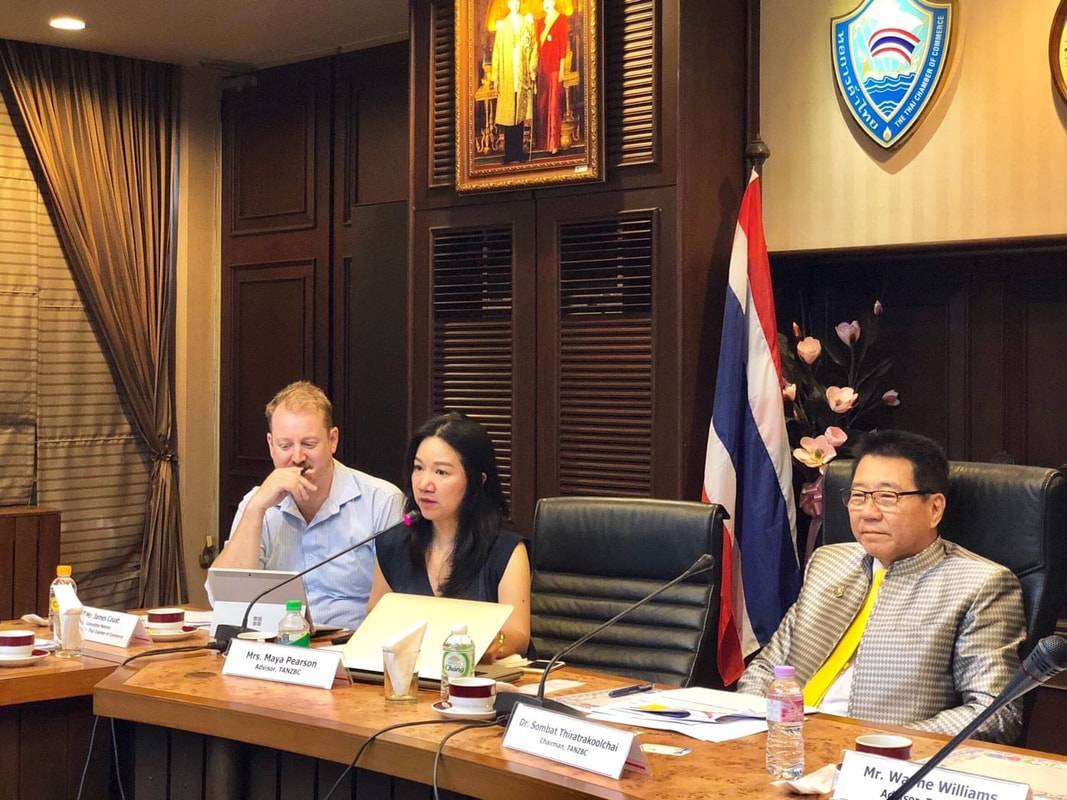
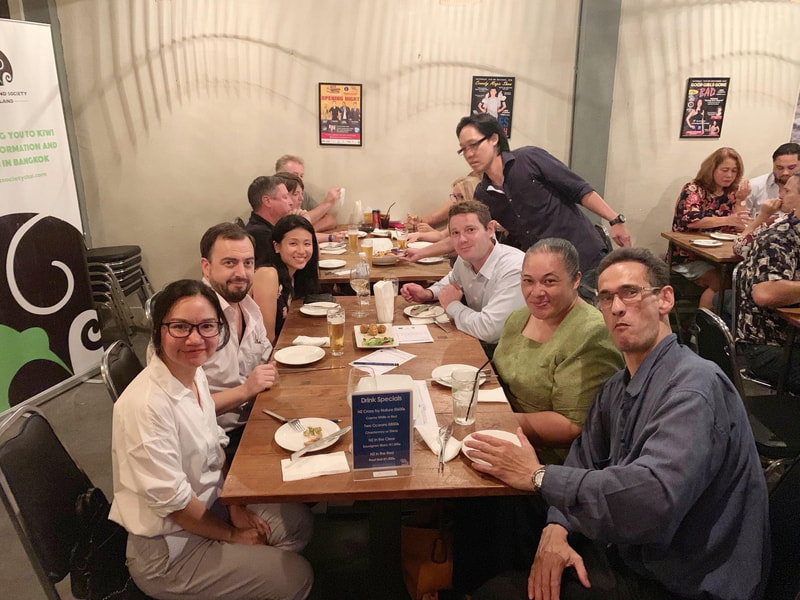
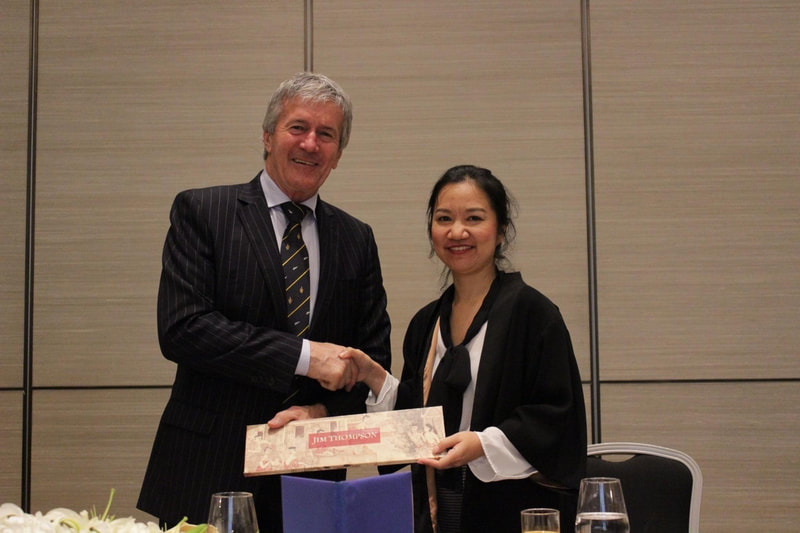
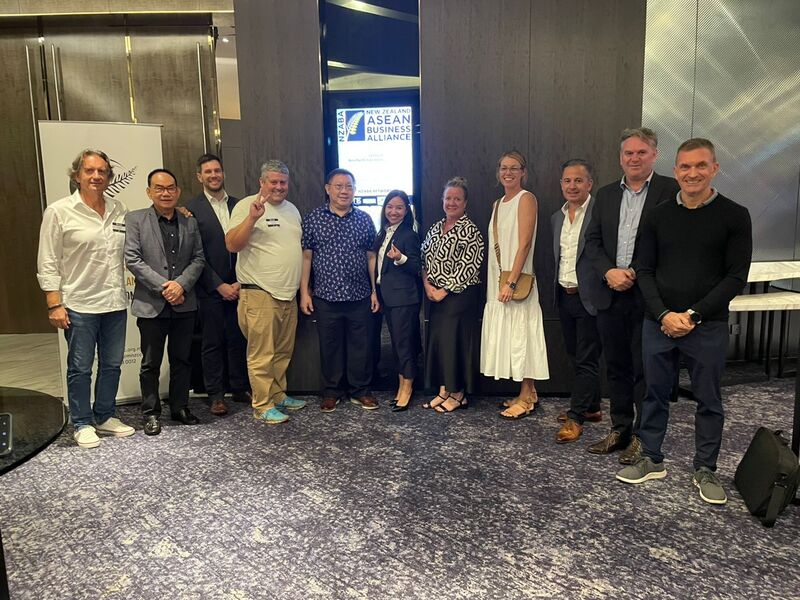
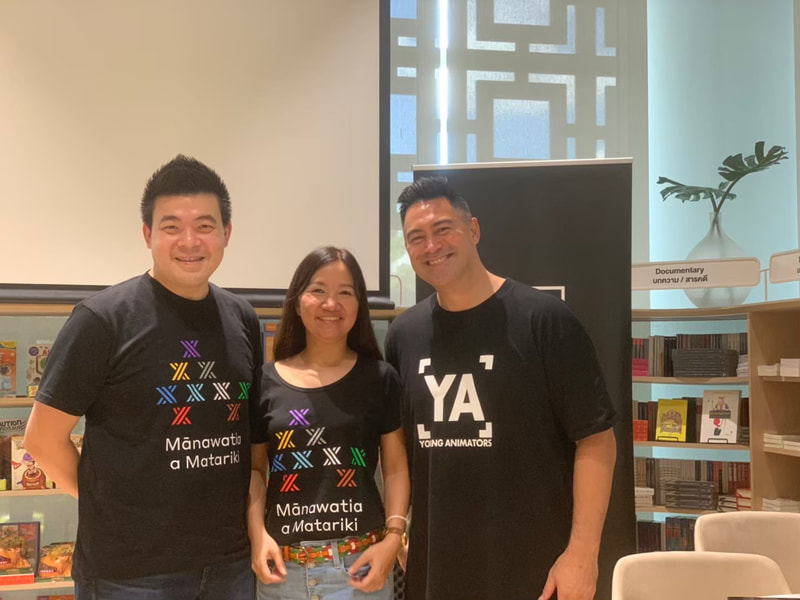
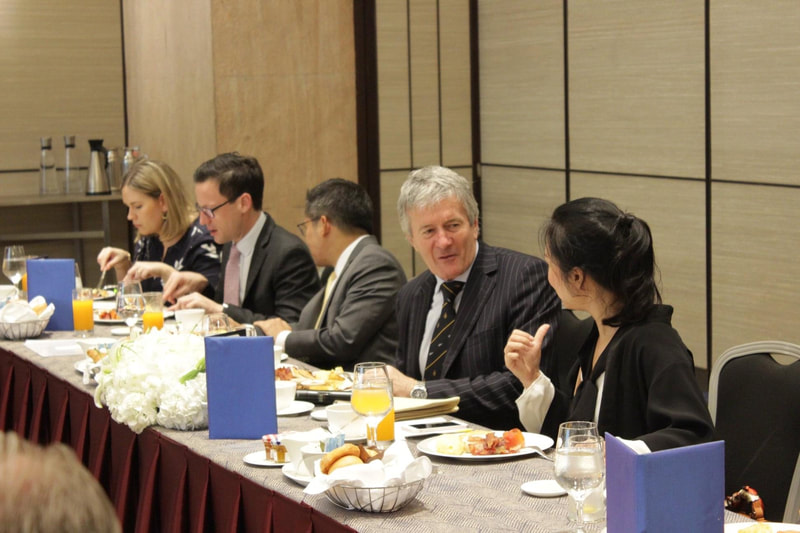
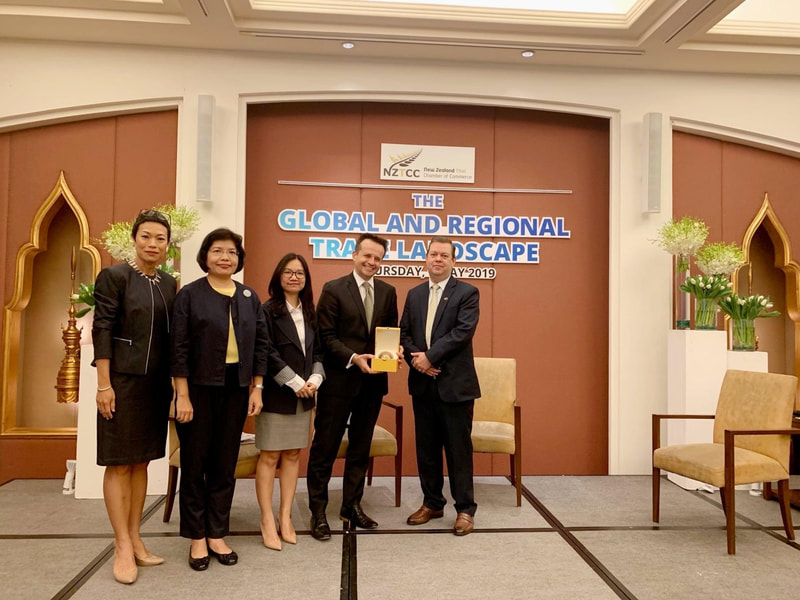
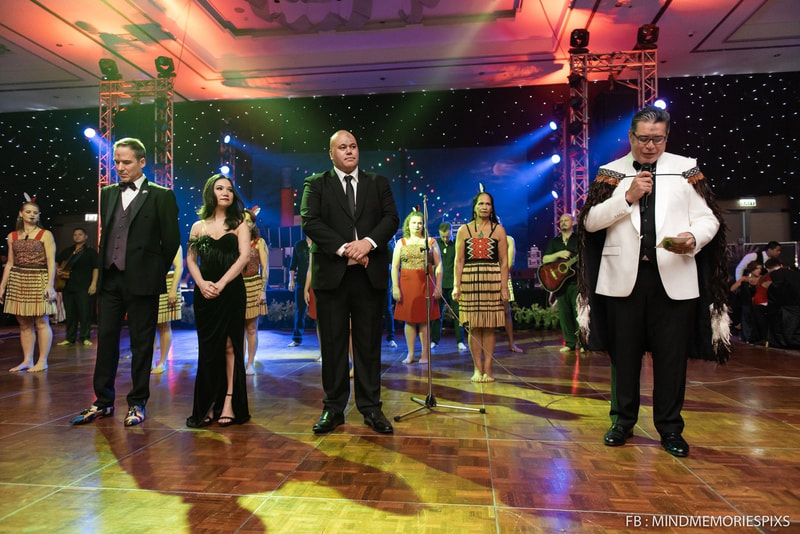
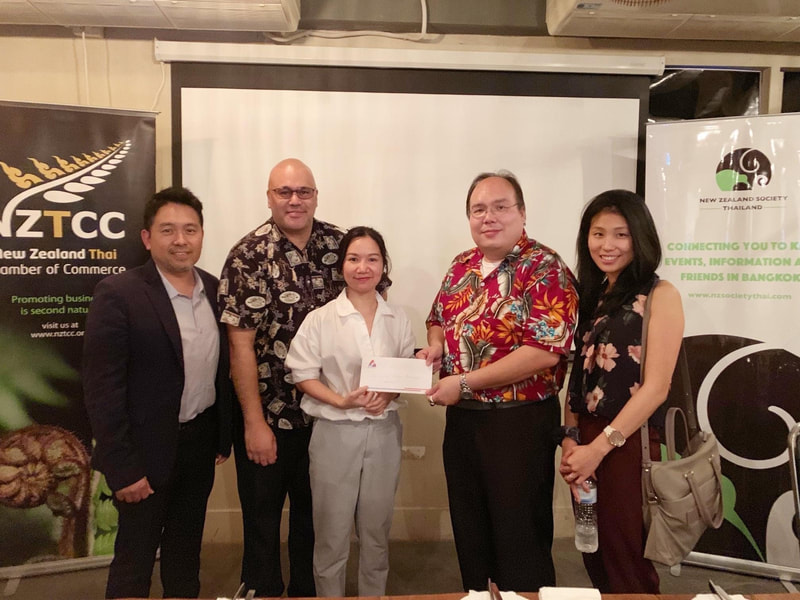
 RSS Feed
RSS Feed
















